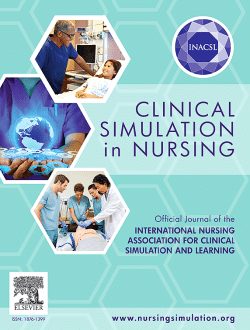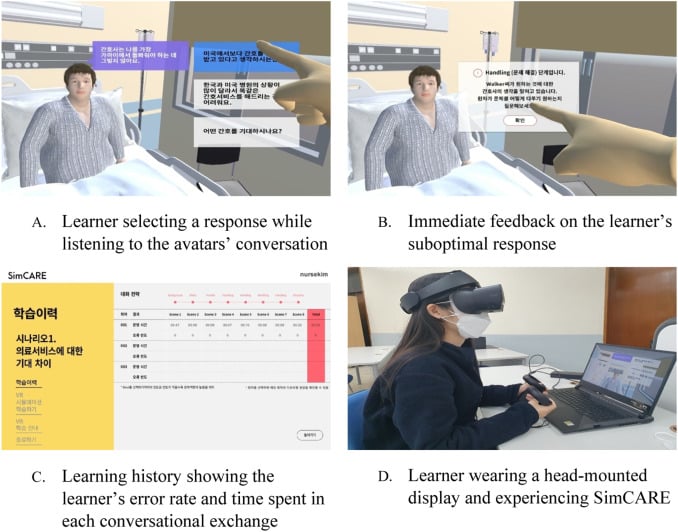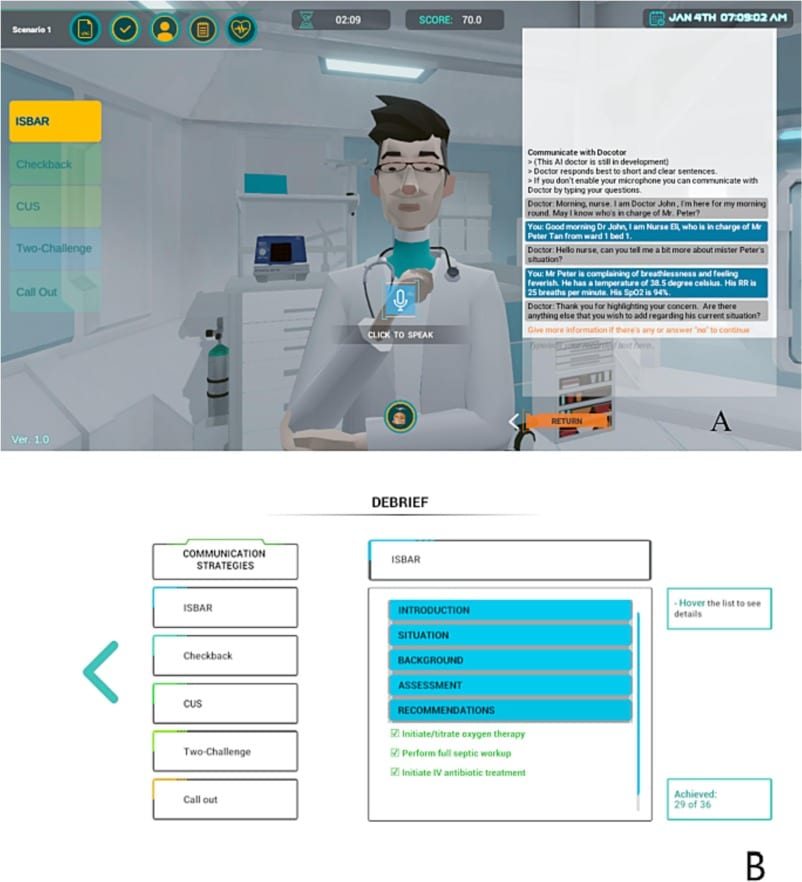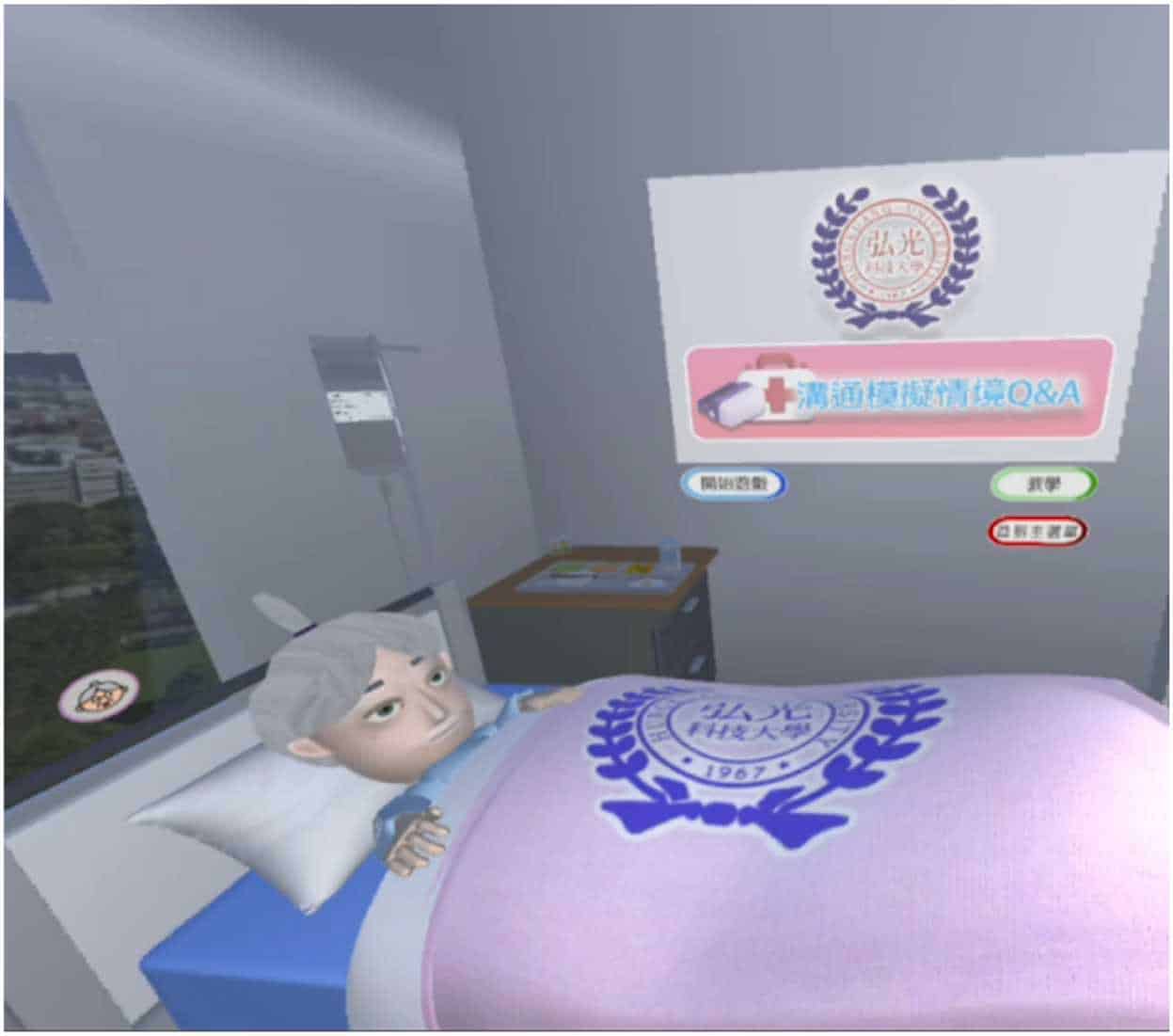Here at i3 Simulations, we’re always up-to-date with new research in simulation, education, and Extended Reality (XR) technology. We’ve decided to share this knowledge through a monthly blog series, where we’ll be sharing the latest evidence on how XR simulations are transforming medical training.
Here’s what’s new this month: mixed reality, virtual reality, and artificial intelligence for building clinical communication skills.

Using Mixed Reality to Practice Difficult Conversations
J. Hannans, C. Nevins – Clinical Simulation in Nursing (2024)
This study examined using MR simulation for nursing students to practice difficult healthcare conversations.
MR allowed realistic role play aligned to clinical experiences. Students felt MR boosted communication skills development and confidence.
MR shows promise for experiential learning on effective communication.
H. Matto, E. Ihara, B. Cieslowski et al. – Social Work Education (2023)
A VR substance use disorder case simulation gave social work students in-vivo practice applying skills.
Students collaborated in dyads, received real-time feedback, and debriefed on decisions.
The VR training offered an innovative, interprofessional active learning experience. Students were highly interested in more VR case scenarios.


D. Chae, J. Kim, K. Kim et al. – Clinical Simulation in Nursing (2023)
This feasibility study developed a VR simulation to improve nurses’ cultural competence through cross-cultural encounters. Most participants reported high satisfaction, sense of presence, and usability.
They felt the simulation improved cultural skills through realistic, repetitive practice. Some limitations like technology discomfort were noted.
Overall, VR holds strong potential for experiential cultural competence training.
Artificial Intelligence in Virtual Reality Simulation for Interprofessional Communication Training
S. Liaw, J. Tan, S. Lim et al. – Nurse Education Today (2023)
An AI virtual doctor was integrated into a VR simulation for nursing students to practice interprofessional communication.
Students showed significant gains in communication knowledge and confidence after training with the AI doctor.
Though rating the AI’s human-likeness lowest, they still found the simulation beneficial, relatable, and complementary to in-person learning.


C. Chou, H. Tai, S. Chen – Nurse Education in Practice (2024)
A randomised controlled trial examined using a VR communication simulation during nursing students’ first clinical practicum versus traditional video training.
The VR group showed superior communication abilities, confidence, satisfaction, and lower stress throughout the practicum.
VR training early in nursing curricula can optimise communication skill development for clinical practice.
What did the research find?
Overall, these studies provide mounting evidence that XR simulations like MR, VR, and AI offer impactful modalities for building healthcare students’ communication competencies through active, experiential learning.
The immersive simulations provide safe yet realistic practice of interpersonal skills vital for quality care. Students reported gains in communication knowledge, confidence, and abilities after practicing with VR, MR, and AI simulations.
To find out more information about XR technology in simulation training, check out our evidence overview, trial the training software, or contact us for more information and any research questions!





